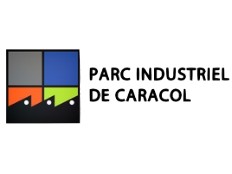|
||||||||||||||||||
| Download the revised decree and electoral calendar, published in the official journal |
|
|
Haiti - Economy : The IDB and the Industrial Park of Caracol 10/07/2012 13:32:59
The investment in the Caracol Industrial Park project is an important component of the Inter-American Development Bank’s efforts to support Haiti in building a vibrant economy that will provide its people with more employment opportunities and access to infrastructure and basic services indicates a fact sheet from the IDB, on the Caracol Industrial Park in the North of Haiti. "[...] Entry-level salaries at Caracol factories will be more than three times Haiti’s per capita income of $700. Workers’ wages could eventually amount to as much as $55 million a year—more than 150 times the estimated value of the crops grown on the 240-hectare plot where the industrial park is being developed. While the garment industry can quickly boost employment by training unskilled workers, one of the goals of the project is to attract companies active in different sectors. The Haitian government is in negotiations with a furniture manufacturer and has received expressions of interest from paint and electric cable makers as well as from call center operators. All manufacturers in the Caracol Industrial Park will be required to comply with a framework developed by U.S. government agencies to advance and protect workers’ rights in Haiti. The framework commits companies to best practices in order to benefit from U.S. trade preferences for their exports. The 366 people who used to farm that state-owned land have received a total $1.2 million in compensation (about $3,500 per household, or five times the Haitian per capita income). All were offered access to a nearby plot with similar characteristics that will be improved with irrigation. Those who prefer to enter a new trade will receive job training. In addition, the elderly and more socially vulnerable, such as single mothers, will receive housing assistance. As with all the projects it finances, the IDB strives to ensure that costs do not outweigh benefits, anticipating and mitigating potential negative impacts. We are committed to addressing the challenges associated with the industrial park throughout the life of the project, so northern Haiti may be better prepared to meet its population’s needs than it is today. During the construction phase, all of the hiring was done in the surrounding communities rather than at the site. Free transportation was provided to hundreds of workers in order to discourage the establishment of informal markets and slums outside the industrial park. Initially, most factory workers are likely to be hired locally. If the industrial park succeeds in generating tens of thousands of jobs, it might attract more peopleto the region. In order to address an anticipated demand for housing, the U.S. government and the IDB are committed to building 2,000 new homes in surrounding communities. The units, which will be hurricane- and quake-resistant, will have running water, electricity and flush toilets. Inside the industrial park, precautions are being taken to ensure that the water discharged by the factories is of better quality than the water taken from the aquifer. To that end, the IDB will finance a waste water treatment facility that meets high international standards. To ensure that the industrial park will have a manageable social impact on surrounding communities, the American Institute of Architects (AIA) is drafting a regional master plan for the long-term development of the region. Their recommendations will cover priority investments to address the region’s basic infrastructure and housing needs. As part of the industrial park project, the U.S. government has also built a thermal power plant to supply electricity to Caracol’s tenants, with sufficient capacity to extend service to surrounding communities. In addition, the U.S. government is also studying how to use alternative generation resources in the area. The IDB is providing funds to support a project backed by the Global Environmental Facility to protect the Caracol Bay and its mangrove. Local fishermen will receive outboard motors that will enable them to fish beyond the coral reef instead of the nearly depleted bay. While the Caracol Industrial Park is a key investment for the development of northern Haiti, it is one of many projects the IDB is financing in that region. Among other operations, the IDB is financing agricultural projects totaling $200 million, with a focus on that part of the country. The IDB has committed to making $200 million in annual grants to Haiti over the next ten years to support development in agriculture, education, transportation, water and sanitation, and electricity throughout the country." HL/ HaitiLibre
|
|
|
Why HaitiLibre ? |
Contact us |
Français
Copyright © 2010 - 2026 Haitilibre.com |





